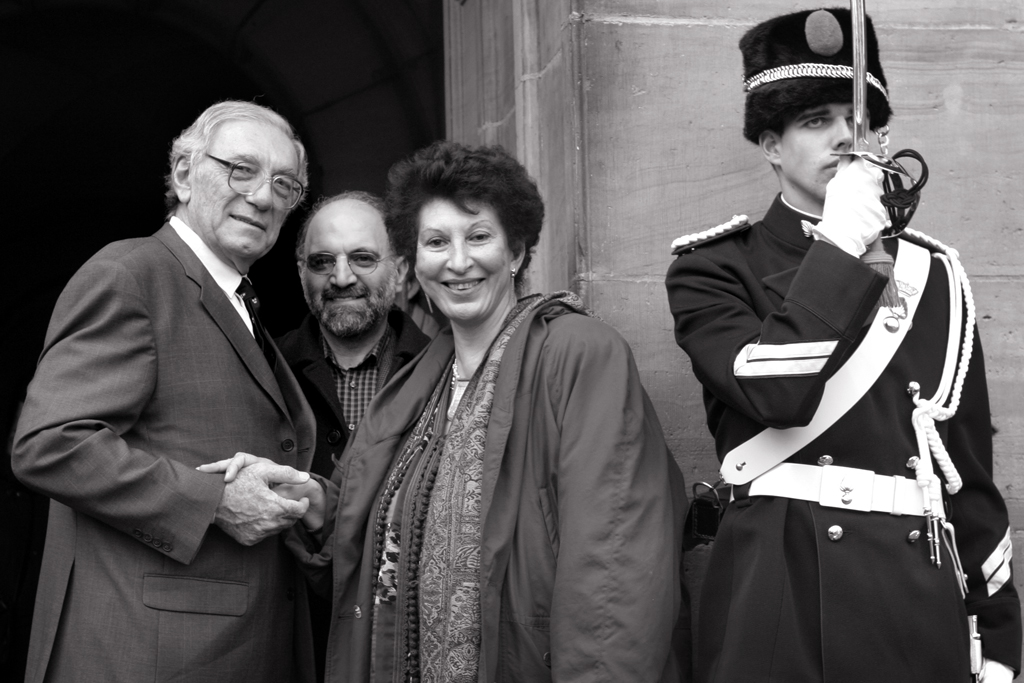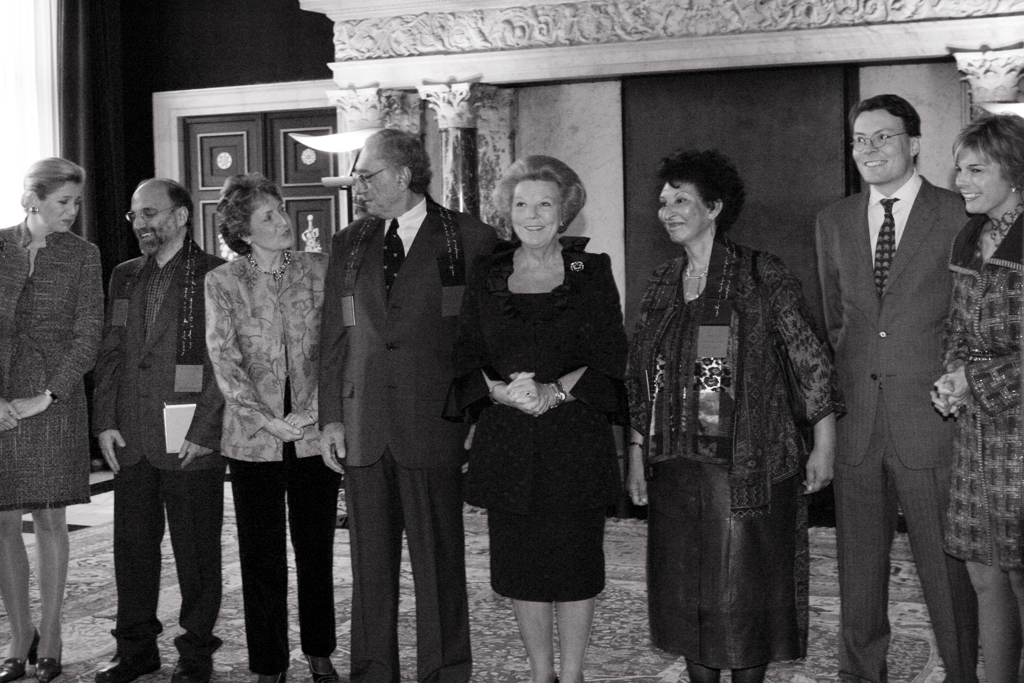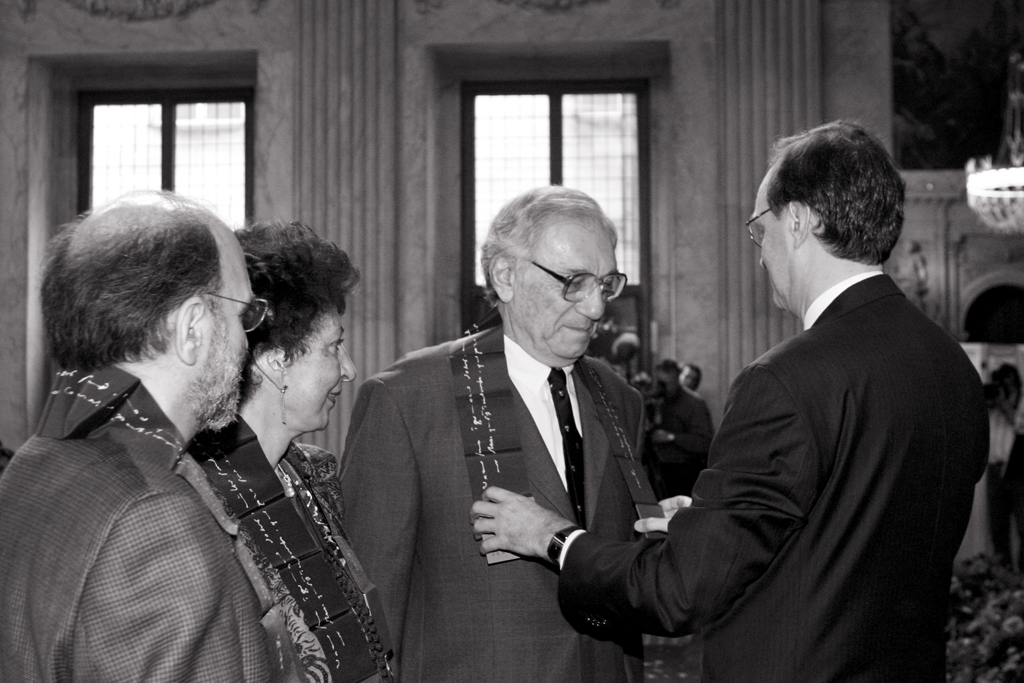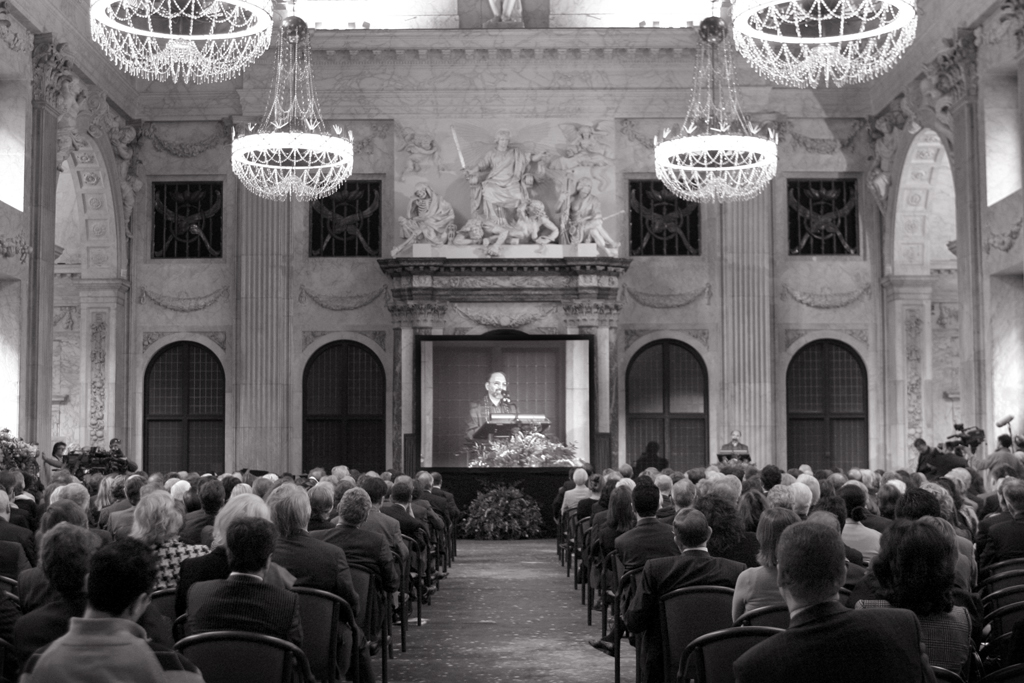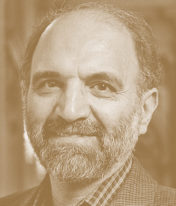Abdulkarim Soroush
Laureate Erasmus Prize 2004
Theme: Religion and Modernity
‘Religion and Modernity’ was the theme of the 2004 Erasmus Prize. With the award the Foundation wanted to demonstrate the multiplicity of views of modernity and people with different religious backgrounds, both in Europe and in Islamic countries. The choice of three laureates reflects the fact that issues of religion and modernity can be approached in many different ways. The three Islamic thinkers provide a sample of the many routes that can be taken. One of those thinkers was Abdulkarim Soroush.
The Iranian pharmacist and philosopher Abdulkarim Soroush was born in Tehran in 1945. He studied pharmacology but later switched to the philosophy of science. He played a role in the protest movement against the Shah, and after the revolution returned to Iran. Although he was a member of the Council for the Cultural Revolution, he became increasingly critical of Khomeini. After 1982 he refused all government service. He taught ‘Islamic Mysticism’ at the University of Tehran and is a specialist in the poetry and philosophy of the thirteenth-century Persian poet Rumi.
Because of his views, he was forced to leave his country in 1996. Although he was later allowed to return, he has chosen instead to stay mainly in America and Europe, where he teaches ‘Islam and Democracy’ and ‘Koran Studies’ as a visiting professor. Abdulkarim Soroush is as controversial in his own country as he is popular. As a devout Muslim he tries to combine insights from Western philosophy and social sciences with a tolerant view of Islam. Within the Islamic tradition, Soroush goes as far as he can to reconcile religion and democracy.
